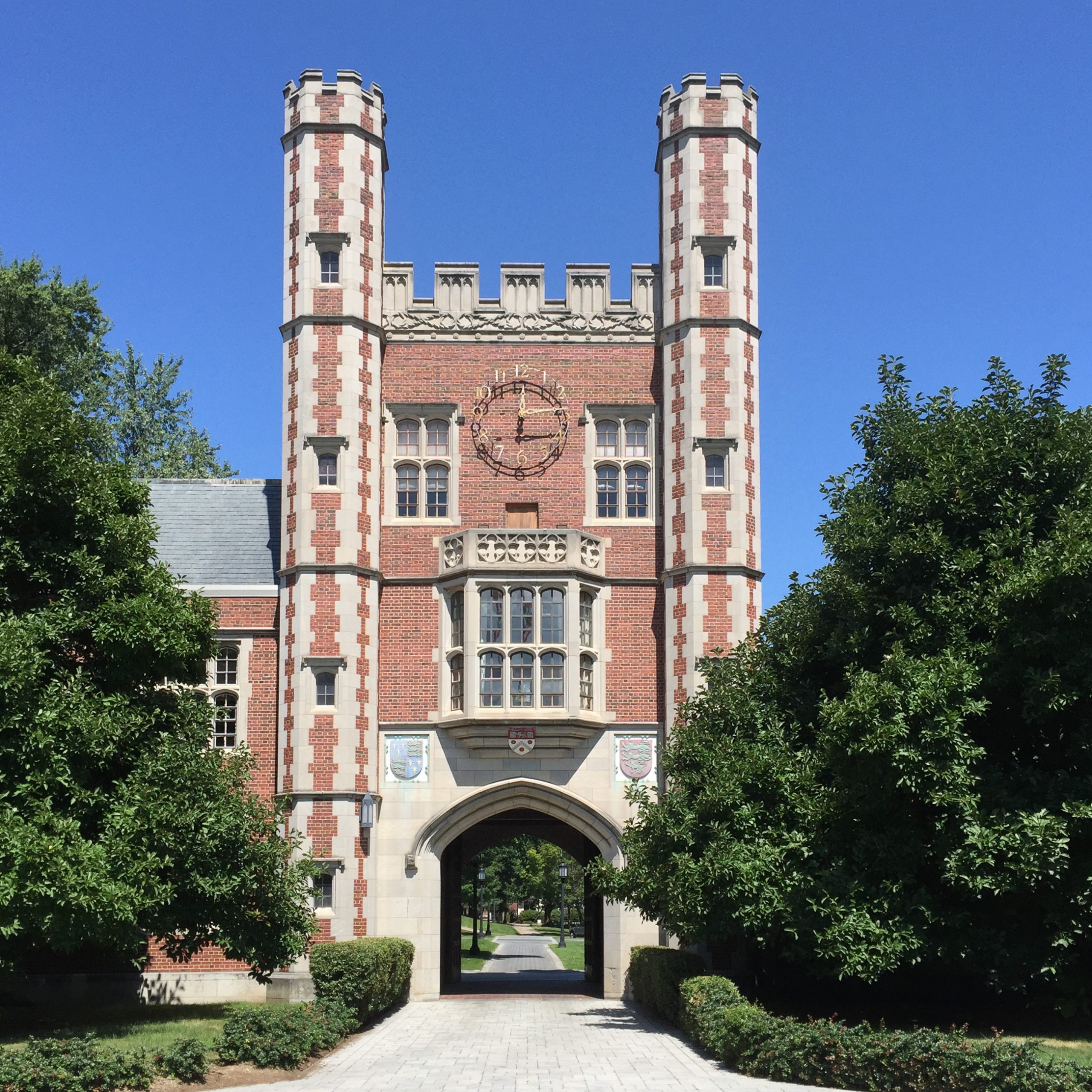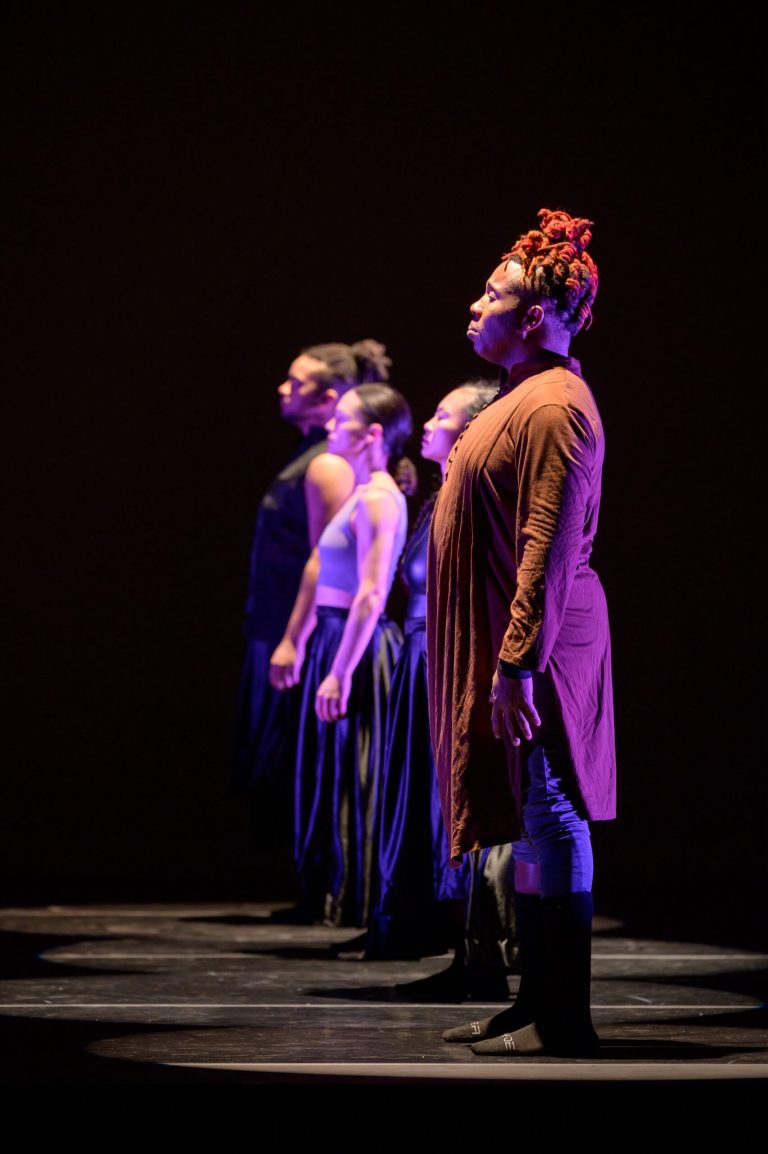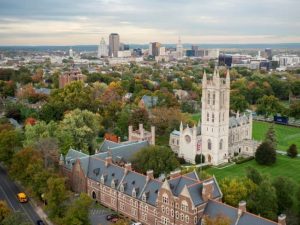Brendan W. Clark ’21
Editor-in-Chief
The Trinity College Admissions Office has been bereft with challenges during the spring semester as they respond to the ongoing COVID-19 crisis and a recent decision by the National Association for College Admissions Counseling (NACAC) to amend their previous ethics policy. Despite this, the office has been working virtually to admit the Class of 2024 and continue with their spring admissions activities.
The Tripod spoke with Vice President for Enrollment and Student Success Angel Perez first about admissions’ response to the coronavirus, which Perez described as “multi-faceted and broad.” Perez identified caring for and supporting international students, financial aid students, and geography as his three greatest concerns. Perez added that while he can “safely say there will be a smaller yield” for Trinity’s Class of 2024 because of the coronavirus crisis, he can’t “say what smaller means.” Last year, Trinity enrolled 618 students and had a yield rate of 31% according to the College’s press release.
Perez added that he is particularly concerned for current international students and those admitted with the Class of 2024, noting that “all of the embassies and consulates are closed,” which present issues for visa applications and other necessary travel preparations. Perez added that, in China, a recent estimate for an appointment for a U.S. visa was November 2020, which would effectively stymie international students attempts to come to Trinity “even if they wanted to.” With international borders closed and travel remaining limited, Perez emphasized that admissions has “no control” over these developments, which makes a response difficult.
Perez is also concerned about many families who “intended to be able to afford a Trinity education” and can no longer do so as a result of economic uncertainties and rising unemployment rates nationwide. Trinity College has a robust financial aid program, with 2019 financial aid allocations totaling $54,643,932 according to the College’s most recent consolidated financial statement. Perez stressed that while Trinity hopes to be as accommodating as possible, it still has a finite amount of financial aid, adding that admissions is trying to determine “what is the amount of financial aid we might be able to increase to support these students?”
Prospective students are also more interested in “staying closer to home” as a result of the coronavirus, Perez indicated. Echoing his comments, in a recent survey The Chronicle of Higher Education reported that the travel uncertainties posed by the virus have prompted 35% of students to report that “campuses ‘closer to home’ were now a more realistic option than their first-choice college.”
Trinity is not unique in maintaining enrollment levels for the Class of 2024 either, with the Chronicle reporting that “three out of five students…are concerned about their ability to attend their first-choice college.” The Chronicle also reported that the coronavirus has prompted one in six current high school seniors to reconsider their decision to enroll full-time in September.
The Tripod spoke with Associate Professor of Religion Tamsin Jones, who chairs the College’s Admissions and Financial Aid committee, which provides faculty oversight to admissions. Jones spoke on admissions response to COVID-19 and the NACAC regulations at the March faculty meeting, telling the Tripod that the biggest change is that incoming classes “may show an awful lot of change after May 1.” This variability makes it “difficult to plan financially,” Jones added. Trinity has been “successful at meeting its yield goals” in the past, though Jones admitted that with the NACAC ruling and “with the current world of COVID-19, all bets are off.” Perez echoed these financial planning concerns: “how can we create a budget when we cannot know how families will respond to offers?” Trinity, in recent days, has shifted its acceptance date for the Class of 2024 to June 1 to increase flexibility.
Perez discussed finances further, adding that Trinity is working to examine and respond to the financial impact of the coronavirus relative to admissions. He told the Tripod that admissions is “just now seeing an uptick in families looking for financial aid, including those who did not apply originally.” With numbers so uncertain, Perez has been using data from the 2008 financial crisis to guide planning, adding that if conditions are similar to 2008, Trinity could see a “20% to 25% increase in financial aid requests.”
With Trinity’s current allocation of approximately $60 million for financial aid in 2020, a 20%-25% increase in requests would represent an additional $10 to $15 million needed to support incoming students, he added. Still, Perez stressed that it is hard to gauge the impact and assess solutions concretely in an environment where “uncertainty is the new normal.” Trinity’s budget, usually approved by the Board of Trustees in April, will also likely be delayed with the COVID uncertainty. Perez added that the year will be an “exception,” adding that the College may not see a budget until “mid-June or July” as you “cannot plan a budget without the data.”
The Tripod also reached out to Vice President for Financial Affairs Dan Hitchell twice for comment on the financial consequences of COVID-19 and the NACAC ruling relative to admissions. Hitchell declined to comment on the financial concerns, indicating that he “did not have time at this point for this project.” Hitchell did add that he would be willing to “talk at a later date.”
For now, admissions has also undertaken a number of initiatives to adapt to the environment, moving many of its recruitment and visit events virtual. Perez described the office’s top priorities, which include continuing the interpersonal relationships that the office tries to foster with admitted students. Perez also referenced town halls for admitted students that he and President of the College Joanne Berger-Sweeney would be hosting in the coming months. “We want to be able to give admitted students an opportunity to ask us questions, to feel connected,” he continued, adding that “we want to work with those students who feel they need deferrals and support. We want to help.”
Admissions has also sought to ensure that admitted students receive “several individual touchpoints” from alums and trustees who have volunteered their time in addition to admissions officials. Among these touchpoints are a video statement released by Perez providing enrollment updates for admitted students. Perez also stressed that Student Admissions Associates will “continue their work online” and “Skype with admitted students.” Work study students have also been offered the opportunity to continue their work with the admissions office despite the shift to remote learning. Trinity has also shifted their commitment and deposit deadline for the Class of 2024 from May 1 to June 1 and has reinstituted its J-Start program, permitting students to defer their start at Trinity to Jan. 2021, according to a recent update in an effort to alleviate concerns with families.
The shift to remote admissions had been under consideration since February as the COVID-19 crisis developed. Perez told the Tripod that he approached his team with the call to “reimagine our whole process online.” The process has been “very difficult to predict and so much is out of our control,” he continued. Perez added that while admissions is currently virtual and is planning for a return to in-person work in the fall, it is still considering the “worst case scenario” that Trinity is online for part of September or the fall semester.
In addition to the COVID-19 crisis and a virtual admissions process, Perez and admissions have also had to work to respond to wider changes in the college admissions process. Specifically, Trinity has been working to respond to changes from the National Association of College Admissions Counseling, who rescinded portions of their ethics guidelines last September. This decision was largely in response to Justice Department concerns that recruitment practices unduly restricted competition and amounted to a potential violation of antitrust regulations. Perez indicated that this change has caused a “seismic shift” in the higher education world.
NACAC represents 1,700 college counselors and universities, 2,400 secondary schools and 1,700 independent college counselors. The Wall Street Journal reported that the Justice Department filed a consent decree in December absolving NACAC from the antitrust investigation and withdrawing a lawsuit filed in early December. The Journal reported that NACAC had “little choice but to make the changes, given the financial burden of a continuing investigation and threat of litigation.”
The most substantial guideline changes include allowing competing colleges to offer incentives to students admitted under early decision programs at other institutions, permitting recruitment and incentive opportunities to students who have committed to an institution after the May 1 acceptance deadline, and allowing transfer recruitment within the previous year’s applicant pool without restriction. The Chronicle of Higher Education reported these changes in an article last September, adding that “some experts on higher education believe that without the provisions, colleges will be tempted to poach students from other colleges.” The Justice Department, conversely, believes that the previous guidelines demonstrated that “colleges are colluding to take away student choices,” according to the Chronicle.
Perez indicated that the ethical guidelines, which had prohibited these actions, had been in place for “thirty years at least” and had been his guidepost during his “twenty-year career in higher education.” The Journal indicated that the Justice Department’s complaint also responded to “adjustments NACAC made to its ethics code in 2017.” The Chronicle, reporting on a statement from NACAC in December, added that the “DOJ decided to file suit … and NACAC determined that the most pragmatic solution to conclude the matter was to enter into a consent decree which mandates that it delete the provisions of the ethical code that were already removed in September.”
There had been no opposition to the ethical guidelines under the Obama administration, with these antitrust challenges arising under the Trump administration. Perez added that the changes impact undergraduate admissions and do not apply to graduate admissions, which have “different organizations and a different process.”
Trinity has “no current plans” to change its past admittance practices despite the guidelines changes, with many of our peer institutions similarly planning to have a “standard admissions process next year.” Nevertheless, Perez indicated that colleges have accepted the changes as the “new normal” and added that “the college admissions process and timeline will change.” Perez will be intimately involved in that reformation process, as he is chairing a NACAC committee on the future of college admissions.
The most immediate change, said Perez, has been “many more incentives coming down the pipeline.” These include offering students parking spaces and financial inducements to shift their admissions commitments to other institutions. Ultimately, despite the changes, Perez believes that “most colleges want to do what is right for parents and students,” adding that he couldn’t imagine a desire for the admissions process and decisions to continue into August in the future.
Jones stressed that “Angel and has team have done a fantastic job” responding to the NACAC changes and the COVID-19 crisis. It has been especially “difficult to plan” this year, she added, noting that the changes will not only impact Trinity, but will “wreak havoc on every college nationally.”
This is the first in a series of in-depth Tripod news analyses that examine how departments and College offices are responding to the challenges posed by the coronavirus crisis. If you have a suggestion for a department or program whose response should be featured, please email tripod@trincoll.edu.







+ There are no comments
Add yours